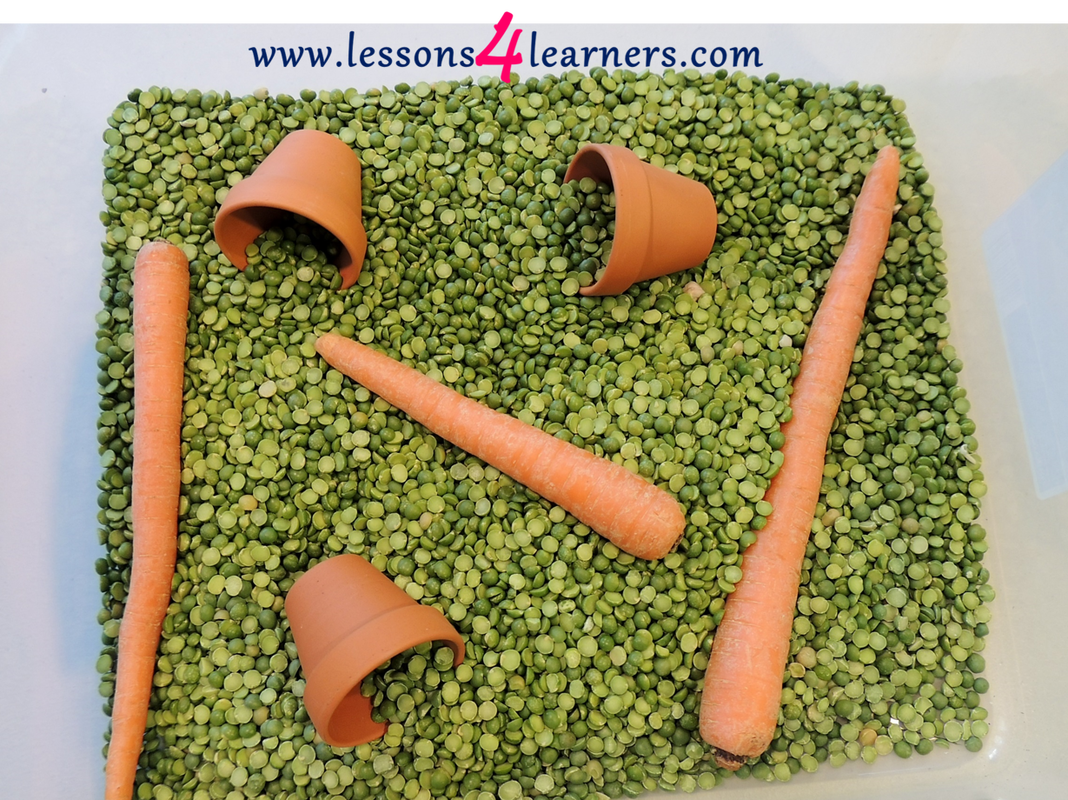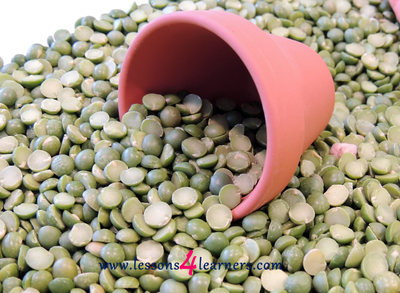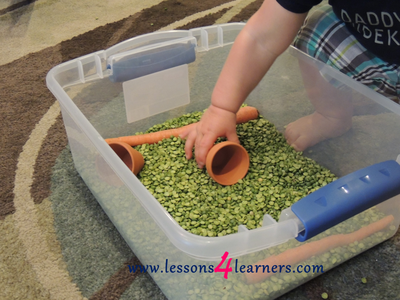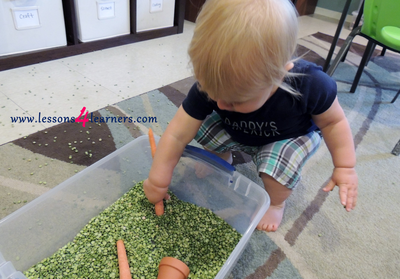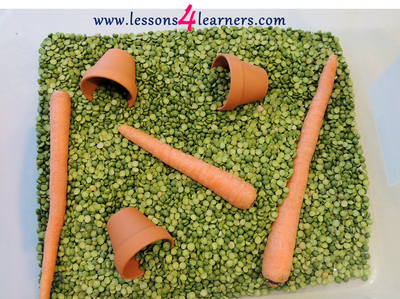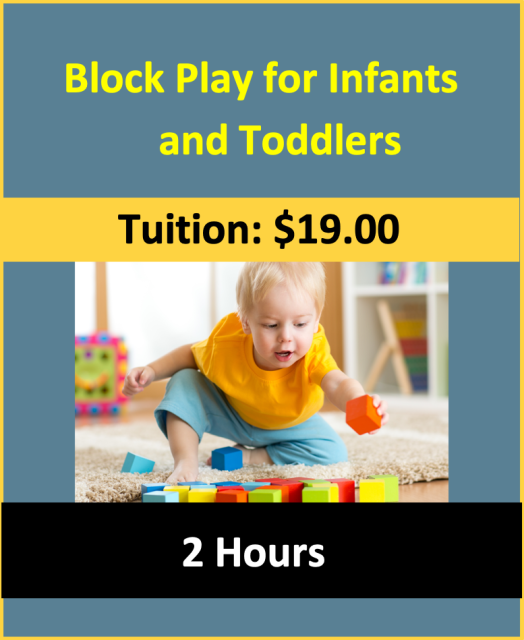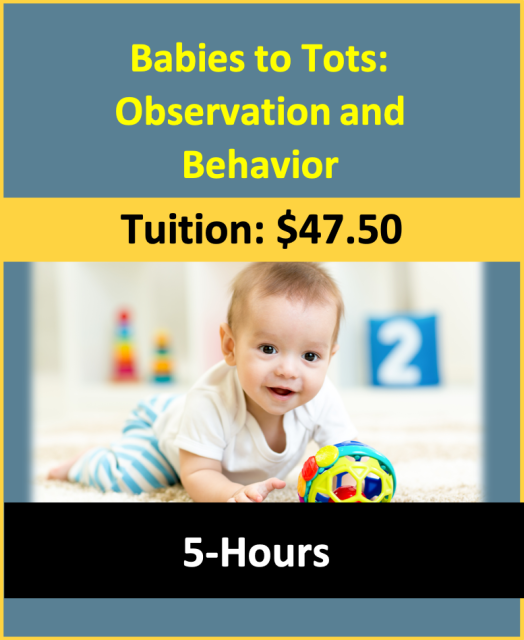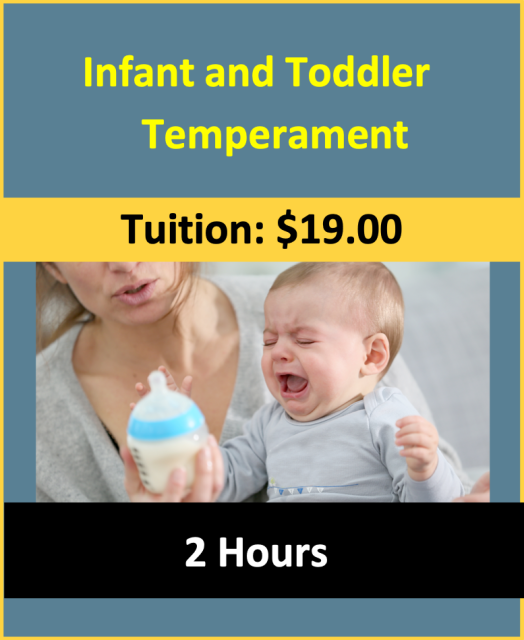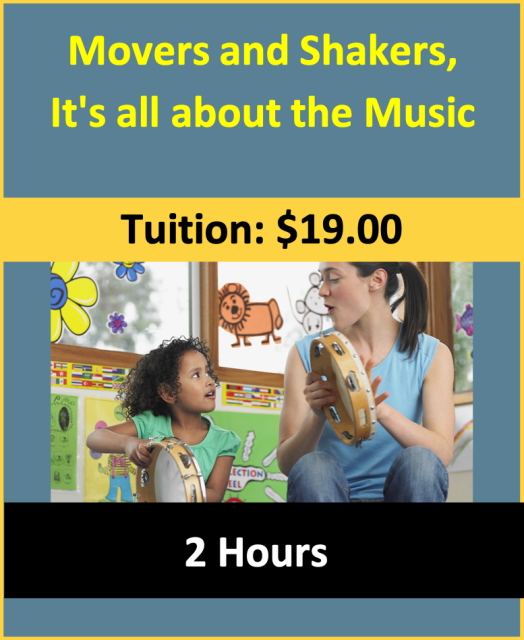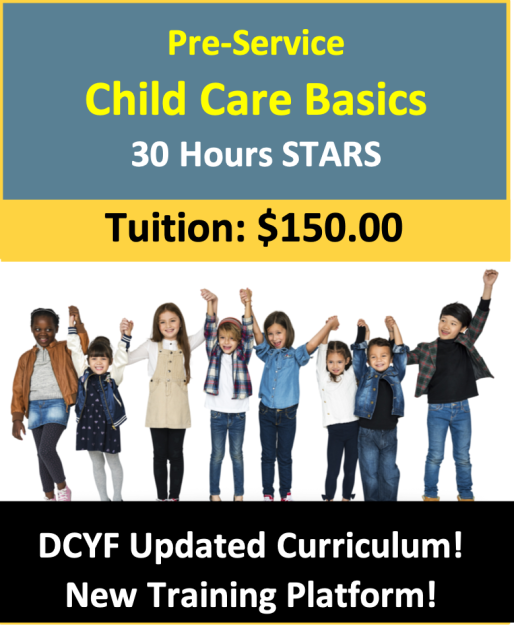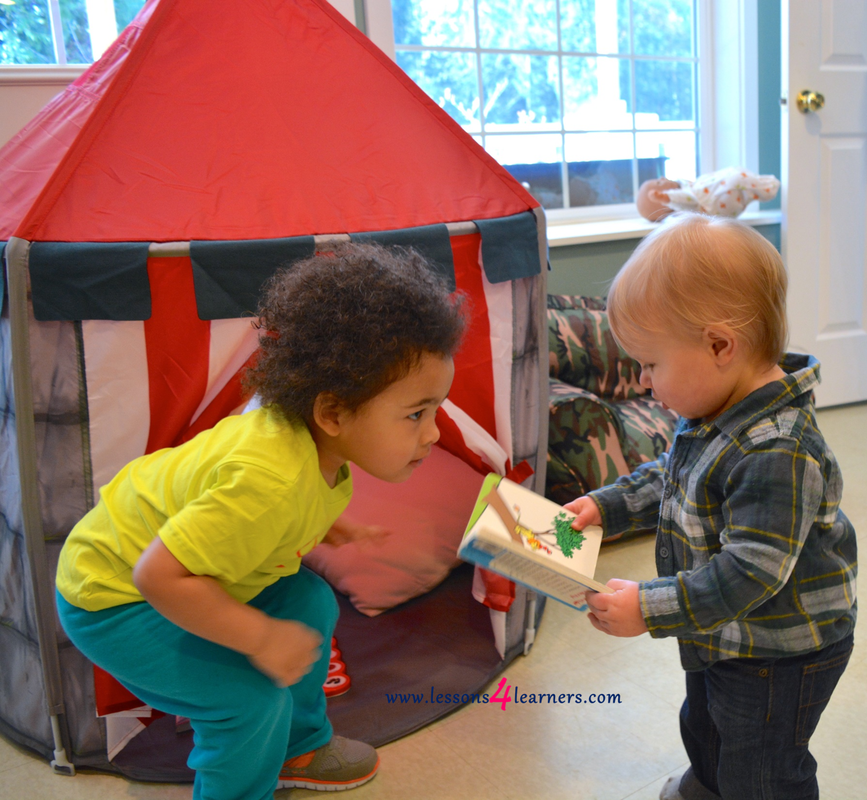Peas and Carrots Sensory Bin
Lesson Plan:
|
Activity:
Peas and Carrots Sensory Bin
Lesson plan developed by Ms. Erika Geelhoed, BA Ed
Age Group:
* Lesson plan objective and assessment can be adapted to use this activity with preschoolers.
Objectives:
Child will:
|
|
II.5.1a
Materials:
|
Procedure:
Create the sensory bin by adding the dried peas to a large bin. Add the fresh carrots, shovels, pots, and tweezers. Place the bin in an appropriate area for play (there will most likely be peas everywhere). Show child how to use the child tweezers to move the peas. Be aware that some children may not be able to or not be interested in using the tweezers. This activity is designed to be an introductory experience for them.
Assessment:
- Observe and record the child’s fine motor skills. Were they able to pinch the peas and transfer them to the pots? Did they scoop the peas using the pots? Take pictures during the activity and put them with the notes in their portfolio to determine growth over time.
Note: Please provide appropriate supervision to the children in your care when completing all activities. You will need to decide what types of activities are safe for the children in your care. Appropriate and reasonable caution should be used when providing art and sensory experiences for children. Toddlers require special caution, only use non-toxic materials, and do not allow toddlers to put things in their mouths that are a choking hazard.
Click on the course icon for enrollment information.
Supporting Toddler Development
Natural loving, responsive caregiving provides infants and toddlers with the ideal environment for encouraging their own exploration, which is always the best environment for learning. If a child is curious about colors and paints, animals or big trucks, you’ll be helping his brain develop by finding ways to explore what he most wants to learn about. Let the child safely explore as much as possible. Gently expose them to different textures, temperatures, scents and sounds.
|
Toddlers need outdoor and indoor space to play actively. Some need a quiet place, somewhat away from the action, where they can relax and watch. Many sleep more easily when in a separate, quiet space, so provide a calm place to sleep. The goal is a balance between an environment that is interesting, but not overwhelming. (Some children get more easily overwhelmed than others by too much color or sound.) Pictures of toddlers and their families help youngsters remember that their parents will indeed return.
Toddlers learn from active involvement with any material. But they learn much more when adults often talk and play with them, rather than just watch them play. Adults can gradually build the attention span of older toddlers (age 2 or 2 1/2) by pointing out new and interesting things to do with the same object. Adults can alternate between showing new possibilities (“If you turn the box over, you’ll see how it opens”) and praising youngsters for doing something new (“You opened the box!”). Teachers can demonstrate imaginative play, such as rocking a baby doll to sleep or saying “varoom varoom” while moving a car. |
